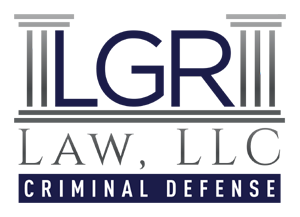A Sea Change in Securities Fraud: The Implications of SEC v. Jarkesy
On June 27, 2024, in a landmark decision, the Supreme Court has fundamentally altered securities fraud enforcement with its ruling in SEC v. Jarkesy. The Supreme Court has ruled that defendants facing allegations for violations of federal securities law anti-fraud provisions must be afforded the right to a jury trials in a district courts, rather than facing administrative adjudication within the Seurities and Exchange Commission (SEC). Grounded in the Seventh Amendment, this shift has profound implications for the prosecution and defense of securities fraud cases.
Historically, the SEC utilized administrative law judges (ALJs) to adjudicate securities fraud cases, a process streamlined by the Dodd-Frank Act of 2010, which bolstered the SEC’s enforcement capabilities. This approach allowed the SEC to handle cases internally, expediting resolutions and leveraging its expertise in securities law. However, critics argued that this administrative process lacked the procedural protections afforded in federal courts, including the right to a jury trial.
In 2010, shortly after the Dodd-Frank Act was passed, the SEC began investigating George Jarkesy Jr. and his advising firm, Patriot28 LLC, for alleged violations of federal securities laws’ antifraud provisions. The SEC proceeded with an enforcement action against Jarkesy and his firm. However, Jarkesy and his firm challenged this process, arguing that it violated their Seventh Amendment right to a jury trial, a claim with which the Fifth Circuit agreed. The Supreme Court subsequently granted a writ of certiorari to review the case.
The Supreme Court’s decision in SEC v. Jarkesy marks a pivotal shift in securities law enforcement. The Court reaffirmed the weight of jury trial in civil cases, particularly when civil penalties are at stake. Accordingly, the Court held that when the SEC seeks civil penalties for securities fraud, defendants are entitled to a jury trial.
By moving cases to federal district courts, the SEC’s enforcement actions will now be subject to the Federal Rules of Evidence and the ordinary rules of discovery, increasing the complexity and duration of litigation. Defendants will now have the right to jury trials, which could lead to more favorable outcomes for some defendants, as jurors may be more sympathetic than administrative law judges. This could lead to a more selective approach in pursuing enforcement actions. This decision could have broader implications for other regulatory agencies relying on administrative adjudication, prompting a reevaluation of how civil penalties are pursued in various regulatory contexts.
Lorraine Gauli-Rufo and LGR Law Group focus on defending federal charges brought in New Jersey or in Manhattan, New York, and White Plains. If you or a loved one is facing federal criminal charges or is under investigation by federal agents or have been contacted by a federal agent or an Assistant United States Attorney, we can help you. Ms. Gauli-Rufo and her team have successfully defended people charged with crimes throughout New York and New Jersey. They have obtained acquittals of many charges and have been able to obtain reduced charges and below Guideline sentences (including probationary sentences) in thousands of cases over the last 30 years. Our representative cases include healthcare fraud, bank fraud, wire fraud, mail fraud, internet and computer fraud, securities fraud, Hobbs Act Robbery, Firearm and gun charges, drug offenses, RICO charges, gang crimes, and more. We also handle appeals and habeas matters. We have appeared and argued in both the Third Circuit Court of Appeals and the Second Circuit. We offer a free 15-minute consultation and defense strategy session for all potential clients. Call today to schedule an appointment with our experienced and trusted criminal defense lawyers. Call (973) 239-4300 or contact us from our website www.lgrlawgroup.com or email us at [email protected].





0 Comments